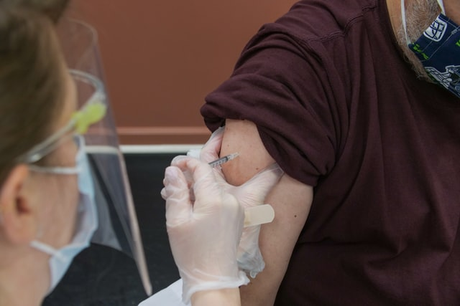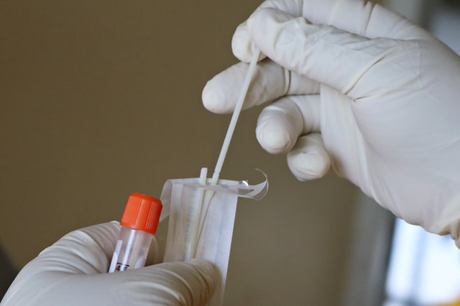
The last two years have been traumatic in a number of ways: 2020 began with concerning stories about a potential pandemic that could affect lives worldwide. So often, stories that begin like that end with public health measures kicking in and the pandemic being contained. But as we now know, it wasn’t contained, and multiple countries have been hit by multiple waves of the virus. So when experts state that 2022 will be the year when the virus “fades away”, do we have any reason to be optimistic?
It’s natural to be concerned over this. The landscape has changed multiple times since the virus began to spread worldwide, and there are many people who won’t trust anything they are told about either Covid-19 or the measures we are asked to adopt to stop it. In truth, it has been very hard to be definite or confident about any forward prediction, given that we have been dealing with a novel virus. Although we’ve been able to mitigate many of its worst effects, the fact is we simply don’t know how effective a measure will be before it’s tried.
Nonetheless, there are some things we do know, and it’s by looking at these that we can understand what the picture really looks like for 2022 and beyond. The first two years of this decade have been hard to process, so it would be reassuring to know if there’s going to be true respite as we look towards the future. Let’s look at some of the important information.
How effective have the vaccines been?

It’s not a secret that some people have contracted Covid-19 despite having been vaccinated, and that some of those people have gone on to die from the virus. So is this an indication that the vaccine is ineffective?
No, is the short answer to that. In medicine, there are no silver bullets. You can’t guarantee that something will be 100% effective 100% of the time, for a number of different reasons. And Covid, like any virus that has had a vaccine developed for it, has proven to be capable of some measure of “vaccine escape”. It won’t stop you contracting the virus – it’s not designed to do that, anyway – and yes, some people who have contracted it have gone on to be hospitalized, with some among them having worse outcomes still. What is also true is that among vaccinated patients, cases of serious illness have been proportionally much lower, and deaths lower still.
There is no doubt that since vaccines became available, the risks from contracting the virus have been lower. People are also less likely to pass the virus on if they do contract it, because they are less likely to be symptomatic, and less likely to cough (one way in which virus particles have been spread). With less of a population to infect, Covid has slowed its progress. However, vaccine hesitancy and mixed messaging have meant that it’s not slowed as much as we’d like.
Are we heading towards renewed/further restriction of movement?
At the present time, most US states have few to no restrictions in place – public health advice is generally to wear a mask in indoor spaces, and to limit time spent in crowded areas, but actual enforced restrictions are limited. People are generally being encouraged to return to work, although between employers asking “What is the employee retention credit?” and employees asking to continue to work from home, it’s fair to say the world of work isn’t totally back to normal just yet. Some states have tightened restrictions in response to a spike in cases, but the overall direction of travel is towards a relaxation.
With the situation as it is, and no news of a particularly concerning mutation of the virus any time recently, the public life aspect of the pandemic certainly seems to be building back towards normality. However, an employment market always responds slightly slower to change than the population around it, so it is worth keeping an eye on the job pages in your area to see how it is faring.
What do the scientists mean by “fade away”?

Unsplash (CC0 License)
Many of us, in the early days of the pandemic, will have spent some time thinking of what we would do when “this is all over”. And we will have pictured a world where the virus was eradicated – but that may not be a realistic picture. We may never – or at least, not in the foreseeable future – be at a point where Covid has died out. What is more likely is that, at least for the moment, it will become a condition that flares up from time to time, not unlike flu. This will happen more in areas of low vaccination, whether that is because of vaccine hesitancy or low supply.
What will change is that, at some point – and the experts are confident that point is less than a year away – there will no longer be the conditions to qualify as a “pandemic” and that the virus will be “endemic.” Certain areas will be considered a risk for virus transmission, but the conditions for a worldwide public health emergency will not be considered to be in place. It is to be hoped, although it is not certain, that enough additional resources will then be targeted to lower the incidence and transmission of the virus in those areas.
Can the virus go from endemic back to pandemic?

Unsplash (CC0 License)
Yes. Initially, Covid-19 was largely restricted to China, and specifically to the Wuhan area, at which time it was endemic within that area. Once it was carried out of that area and infections started to snowball in other countries, we were well on our way to a pandemic. And for as long as there is high incidence of a virus in one area, there is the possibility that it will mutate, have more ability to escape vaccines, and spread again in other areas. Many public figures have used the phrase “no-one is safe until everyone is safe”, and there is a deal of truth in this. For as long as there is significant transmission regionally, there is the possibility that it will become global.
In other words, 2022 will in all likelihood see the virus fade away globally – but there is no guarantee that it will stay faded away. What we can say is that any reaction to a new spread of the virus would likely be more immediate and aggressive than the reactions at the beginning of 2020, when many were caught by surprise and the global reaction was sluggish, unco-ordinated and uninformed. Pockets of a virus can spring up and cause public health emergencies – as localized outbreaks of conditions such as whooping cough, mumps and scarlet fever have shown. What is unlikely to happen is that those outbreaks spread as far and as fast as Covid initially did.
So what will 2022 look like?

Unsplash (CC0 License)
Here’s the thing: while we can say with a degree of confidence that the pandemic will come to an end, and that it is likely to happen in 2022, we can’t say exactly when and we can’t say how. The tipping point from pandemic to endemic is tentative and hard to pinpoint in real time, and we’ll probably only recognize it once it has happened. For right now, the smart thing to do is keep taking whatever measures you have been taking, and stay safe until we know more. There is no point making bold predictions now, because if this pandemic has taught us anything it is that a prediction can be very quickly made to look foolish.
Thank you for reading!


